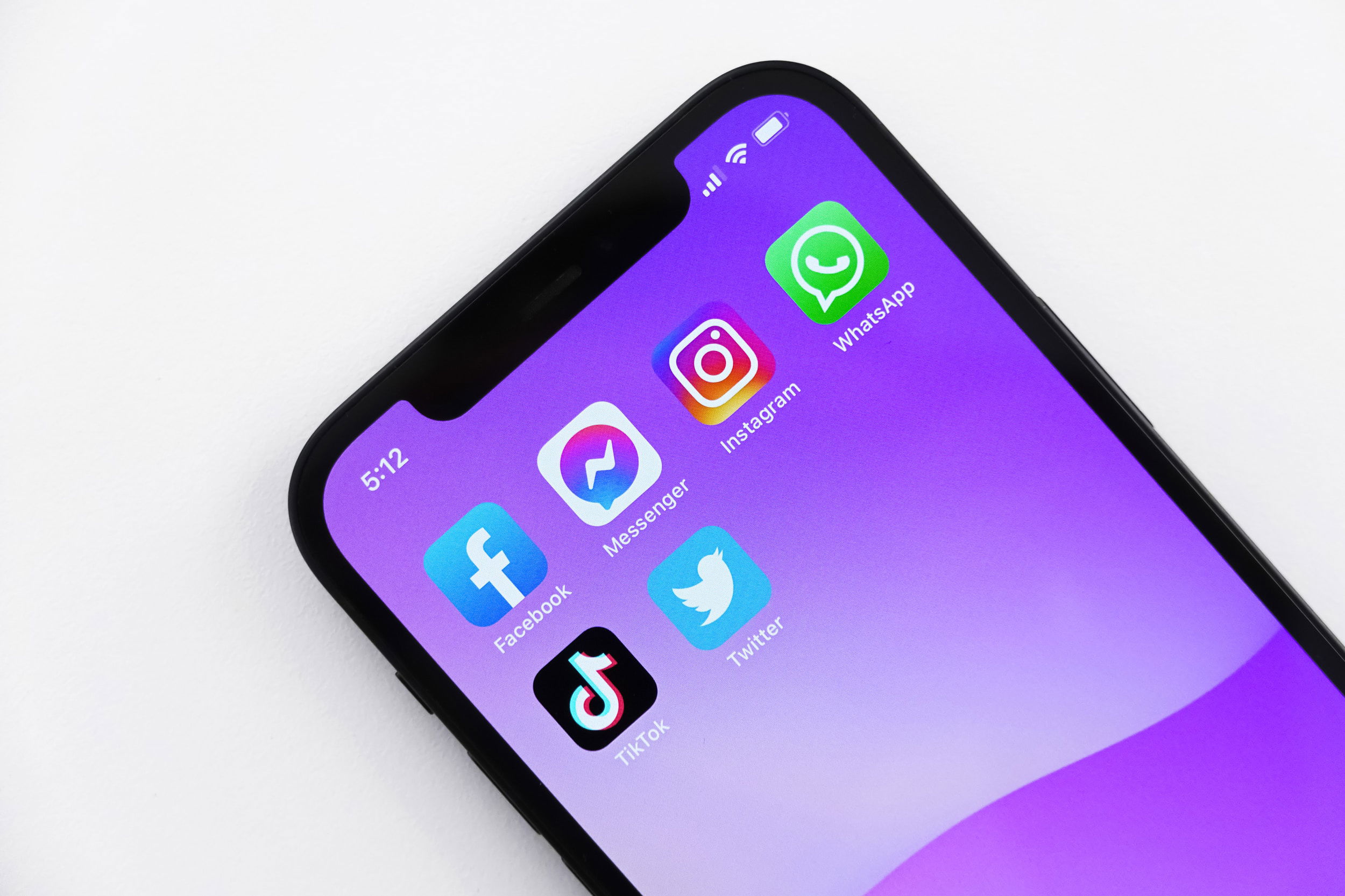Internet Privacy - How Free Are We?

We love to think of ourselves as creatures of utmost rationality. The truth is, I believe our irrationality is what makes us fundamentally different from other creatures.
Just think for a moment about the forces that shape our choices in life. If you are hurt, 9 times out of 10 the perpetrator is a lover, a family member or a friend.
More surprisingly, we justify erring behavior using logic. Give a needy person 10 dollars, he’ll get a meal. Give him 2000 and he’ll get a pair of Gucci sunglasses and Jordans. So much for the Maslow Pyramid.
But science fails to explain our irrational side. So we lean towards all kinds of religions just to avoid the pain of admitting defeat.
We pray when we’re on the edge only to curse when the threat goes away.
We love those who do us harm and harm those who cherish us.
We kill for love and love for lust.
The way the great Vincent Willem van Gogh sees it is:
The fishermen know that the sea is dangerous and the storm terrible, but they have never found these dangers sufficient reason for remaining ashore.
Now, how incredible is it that a powerful tool like the Internet is free? Long story short, if anything is free “you’re the product” might apply here.
In the fishermen’s story, the sea must be the improper use of the internet, while the safe shore is our privacy.
We are trading our time, our private information, everything that makes us who we are for nothing in return but a shallow sense of acceptance on social media.
“Magic mirror on the wall” turns into “Instagram on my phone”. So who’s the “fairest” of all one might ask…

Internet Footprint & Digital Crumbs
While we navigate through our internet browser, visiting all kinds of websites and updating our social media status, we seem to be leaving behind some sort of vapour trails or bread crumbs. It’s this trail that helps internet giants and anonymous hackers identify us and more importantly have a detailed record of all of our customer preferences, our family photos, the places we have been to, our physical addresses and emails, along with everything that could be related to our digital identity.
In fact, what many of us don’t know or seem to overlook is that our personal data is nothing short of an asset that belongs to us and us only. And like with any sort of assets, such as stocks or bonds, this entitles us to rights and interests in our data. That goes without saying that no physical or online entity should have the right to use it or trade it without our consent.
We are living in an era where Tech giants like Apple, Facebook, Google and Microsoft, to name a few are exploiting the information we’ve given them for free while signing up for their products and services. If we take into consideration that 90% of Google’s revenue is coming from online advertisement, we can have an idea about the amount of value hiding behind our personal data. And so goes the Millennials wisdom that goes “if you are not paying for it, you are not the customer. You are the product!!”.
This gets more concerning if we give thought to the fact that Google is regularly scanning our Gmail, that our iPhone knows exactly where we are at all times even if we turn the location services off, and that we don't even own our facebook profiles or any of the pictures we post on it. It all belongs to Facebook, and we have given it to them. Nice and free. The colour filters, rose crowns and doggy faces are just a bait.
I dorecall when I first realized that there is something wrong with consenting to everything Facebook and Google asks you to sign up for. I had just looked up for cheap round trips from Albuquerque NM to Las Vegas NV. For the next couple of weeks, my Facebook, Instagram, Google, Gmail and Youtube have been all about cheap car rentals, Las Vegas Casinos, Call girls in Reno, “Visit Arizona before Nevada”, you name it.
It was straight up creepy. And I felt like someone is clearly treating my digital presence like a disposable credit up for the taking.
Needless to say, I resisted the temptation of cheap car rentals and Arizona callings. I ended up on a road trip with my own car!

How Did We Sink This Low?
Let’s rewind back, and for starters, here’s one question that could help us get a bit of contexte. How to make a profit from any website? Besides going for a paywall where access is restricted to users who have paid a subscription fee, or setting up an online platform aimed at selling goods, very few options are available.
In fact, most blogs or website owners, shaped their business models and crafted their content around driving traffic towards their online portals. Traffic is to their business as desperation is for Las Vegas. Simple math at play, a fraction of the audience is going to buy something. If not, eager visitors would see or click on the advertisements published and banners of ads. Their streams of revenue hinge on “Pay per views (PPV)” and/or “Pay per impression (PPI)” schemes. And those ads are often generated after our internet browser has been tracking our navigation history. That is everything we have been buying or looking for, what we have been doing online, and cities we recently visited and checked in, etc.
To sum it all up, companies are paying those who offer to sell our data, because they think they could offer us the service we might be looking for.
Now on the mobile phone side, if we run an online analysis on our smartphones we can quickly unravel tens of applications we have installed, that are actively accessing our content, our 24/7 information, and our media files, and that we may have or have not consented to it while installing the app and checking “Agree’ on the often lengthy and dubious “Terms and conditions” section.
The data mining industry
Here is a part of the information that is collected by Google if you have a gmail account and you linked it to your phone :
- What are the apps you have installed
- When did you take a flight and who you were with
- All of your day to day, hour by hour location and who you were with. (Google officially admit that even if you turn off your GPS, they still continue to collect your GPS location.)
- All your purchase on internet.
- The detailed app list where you spent money on it.
- All your web history, classified by devices.
- Behavioral pattern analysis. Even if you never gave your name, and behind a VPN, you still have a footprint and you are classified in specific category.
- Date and geolocation of all your media, photos and videos.
This lead to the following obvious consequences :
- The fact that you have a unique ID (Mobile device = Your google account) lead that without knowing it, you gave access to tons of application on your device to a lot of personal information. On the cover of ergonomics, it’s like a vulnerability facilitator.
- Advertisement targeting is one of the first things that comes to mind, but this can have also relationship or juridic impact. Can you imagine if it becomes mandatory to show your phone content to border control like the recent story that happens recently to Former Mozilla CTO Andreas Gal who spent 3 hours in interrogation because he doesn’t want to unlock his phone ? Can you imagine if couple relationship start to think it’s normal to show all your history to each other ? (Some of you may already be in this situation) Anyway, you name it, the consequences are endless.
- Content targeting is one of the paradoxes of this list. On one hand, you are always happy that Youtube or Netflix use complex AI to give you the right content that they know is the kind of video you like. This practice was not built to make you happy, it has only one goal : capture you on their platform as long as possible. On the other hand, one insidious consequences is that you are no longer on a free and open internet. You are not facing the randomness of internet the same as the good old days. Indeed all the content is still available, but it’s no longer displayed to you. From the Google and government point of view : The best jail is the one that you cannot see. Let’s go one step further, and imagine in the future, an advanced self-driving car, that know all the kind of place you like, your past behavior and habits. This could lead to give the AI behind it a complete control over you life.
- Knowing that everything on the internet is here to stay sometime during many decades, if somebody do some defamation on you, it could follow you for years. Service that try to clean up your internet presence have excessive pricing going up to $15,000. But defamation is always easier the more content about you there is publicly already available.
Actions to regain (part of) control
The following TODO list will allow you to reassess what you have been unwillingly giving for free and ultimately regain your online privacy.
What data has Google been collecting about you?
Here is where to find out what data has been Google collecting about you - https://takeout.google.com/settings/takeout?continue=https://myactivity.google.com/more-activity?authuser=0&hl=en-GB&utm_source=udc&utm_medium=r&restrict=waa&pli=1
The amount will be shockignly huge, gigas of information, location data, passwords, internet activity, surveys, web history, you name it.
Creepy detailed daily geolocation - for everyday you have had a google account
Your past location history is kept and well documented here - https://www.google.com/maps/timeline?gid=112950042635453042889&hl=fr&pb
You can trace back your daily movements for the past years or so.
Web history - for a quick divorce
The following link will help you see and delete your freak of a web history. You will thank me later.
Activity control: have your say!
You can check and pick / delete tracked activities here - https://myaccount.google.com/activitycontrols
Annoying Advertising
Halt Google's ads based upon your activity here - https://adssettings.google.com/authenticated
Third party application permission
Authenticating an application with your google account is one thing, but giving it full access to your personal information is pushing it too far.
Here you can see all the third party application creeping up your detailed personal information https://myaccount.google.com/permissions?utm_source=google-account&utm_medium=web
The section “Third party apps” should be as empty as possible.
Your Google "Persona"
What happens when you type your name in a Google search? Not proud of that old picture from some college party? The good news is, EU citizen may request anonymity and deletion of all information related to them here - https://www.google.com/webmasters/tools/legal-removal-request?complaint_type=rtbf
You may delete anything you want.
For non-UE citizens, the process is a little harder. Nevertheless, some resources do exist:
URL remover tool : https://support.google.com/webmasters/answer/1663419?hl=en
Legal request to remove content from google : https://support.google.com/legal/troubleshooter/1114905
Keywords: Information privacy, Internet privacy, Private information, research engine, Google research, Digital footprint
Photo credit: Unslpash / Bixabay, unless credited otherwise.
Mehdi MEZNI - 2021